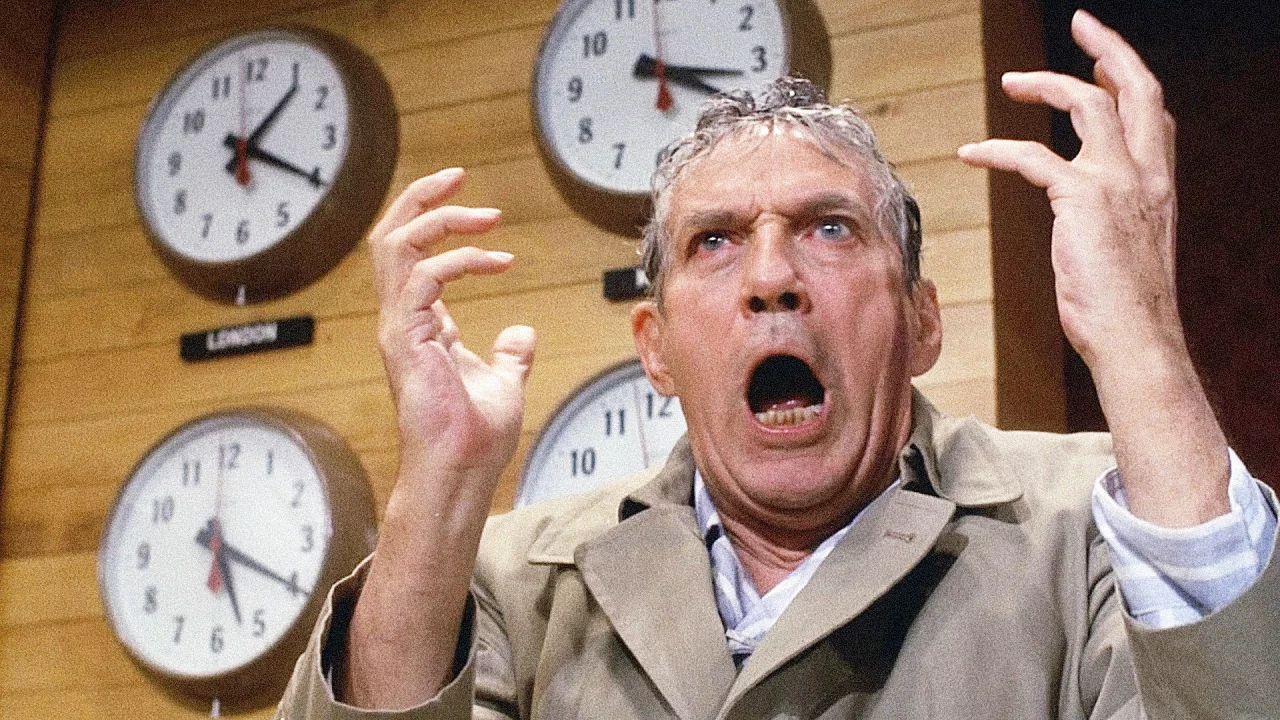Recently, we've been fortunate enough to have conversations with some media and podcasting types. This seems to be on the rise, because we have a bit of the grizzle to us, and have been at places where we get insights on The Future, which is already in progress.
Which led to the following listicle. Enjoy, argue, like, share, subscribe, tithe, carve this into cryptic rubrics or into hard to follow bad poetry. You know, the usual.
8) Last click is last century.
The idea that one marketing channel (usually SEO, but sometimes email) is your favorite child and none of the other kids ever pull their weight isn't just bad for the brand, it's not even true once you start to look at synergies and the funnel.
7) Single KPI marketers RIP.
Similar to last click, but a little different. If you think the only problem that, say, your display ads need to solve is More Click, just go show them to some robots. Hint: robots tend not be such great shoppers. Any marketer that only cares about one metric, no matter what that metric is, has a fool for a client. And foolish clients eventually stop being foolish, or clients. Or in business.
6) Your devices talk to each other, and you do not notice, because it's not creepy.
Let's say you are the kind of person who is never going to buy a truck, go to a movie theater to watch a cape film, purchase or discuss pharmaceutical products for others, or donate to a political organization that is diametrically opposed to your views.
Now, let's imagine that you never see an ad for any of these products ever again.
Would you find that creepy, or would you just go through your day with less distraction, annoyance, ire, etc.?
This is where the technology can go with cross-device technology and information sharing. It really, really does not need 30 days of e-commerce stalking to ruin things for every legitimate use.
5) Creative testing will stop sucking.
I get why creative testing is, 99 times out of 100, a pointless chore. It can go sideways in a hurry when the highest paid person in the room weighs in with their Almighty Gut (the one that has all of the feeling answers), or when everyone has the good faith / scared subordinate desire to not be seen as the champion of the ad that failed.
But, um, folks? That's not how science works, or progress, or math.
We learn when things deviate from the mean. We learn from explosive failure or success. Then we iterate, shine, enhance.
If you are walking on eggshells, rolling over for everything from Gut Exec, and not committing enough to a campaign to test, you are doing it wrong. If your tech or media plan does the same thing, well, same thing.
You are also working in a bad situation. Eventually, you'll stop. We have faith. (Also, well, math and tech that is dragging us there.)
4) Social media will improve or die.
Do you spend as much time as you used to on Facebook? No, of course not, the numbers and stock evaluations are proving that, and if you claim to be excited about the Metaverse, well... welcome to the blog, Meta Employee. The rest of us are watching Second Life Part Duh, but with headsets. Yay, headsets! Way better than phones, except, well, not.
The reasons why you are spending less time on social aren't hard to fathom. Personally, I find curating memories of dead pets more sad that I want to deal with routinely, along with ducking the obvious trolling clickbait pieces or oversharing. (Yes, I get it. You play Wordle. Now please tell me something more interesting about yourself. Toenail length, at this point.)
What needs to happen to get these increasingly run-down stores to provide something more than a dutiful check in for mentions and work? Hell if I know, but Stein's Law, people. You may or may not like TikTok, but at least it's different.
3) Bad faith actors are purged.
See item 3, then apply it to publishers that make their sites unworkable due to over-advertising, exchanges that provide traffic that never gets to the mid-funnel, marketers that make short-term single KPI moves, and so on. New technology always favors the grifter (side note to the folks that want us to work on their NFT or crypto concerns; um, nope), but that edge does not last. Providing actual value is still necessary, and the only thing that endures.
2) Direct mail will survive and thrive.
Ready for our most radical suggestion for 2022? Engage in direct mail. Especially if you have work from home targets, especially if your lists are good, especially if you have novel ideas for creative execution in this channel. Now that the USPS is getting back on its feet (speaking of bad faith actors being purged...), there's never been a better time to make your mark with a physical piece in an increasingly digital world. So send!
1) Your inbox has always been a competitive separation. It's going to become more of one.
How do you personally feel about people who ghost you, who don't read or reply to emails, who require multi-channel follow up, and who react as if you need to be on call for them, but not vice versa?
Yup. Us too. Perhaps understandable, but also not printable and no one that would be on the top of your list to recommend working with.
As more and more employers move to remote and fractional work while trying to execute clawbacks on benefits and job security, personal loyalties will move more towards colleagues and less toward firms. Which means you are going to gravitate towards the people in your life that inspire better work, and less for those you would rather avoid.
(Well, most people. Full disclosure: we're OCD about zero inbox. Besides, we *love* all of our clients...)












